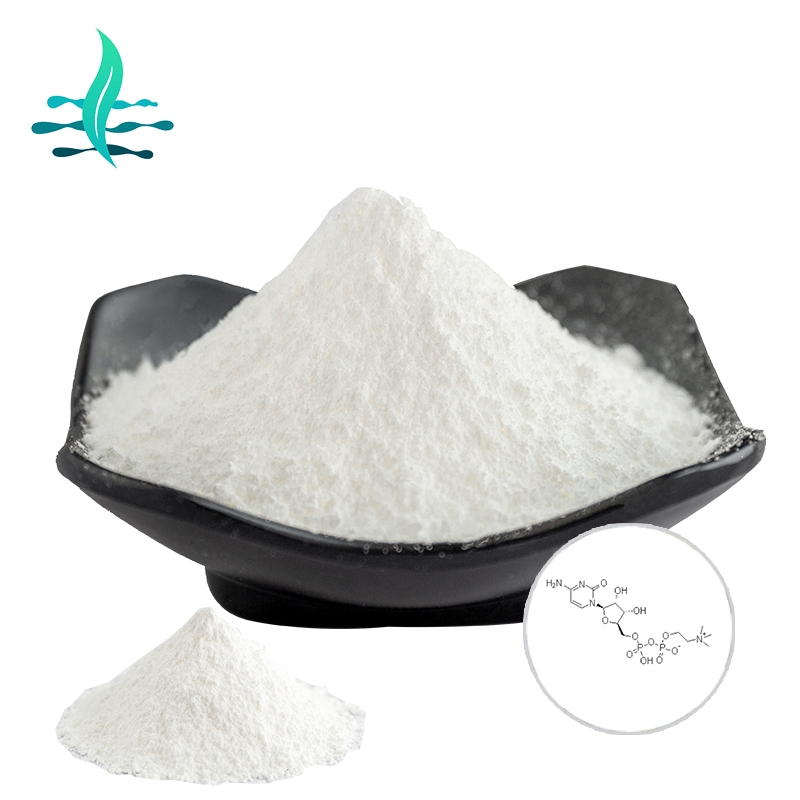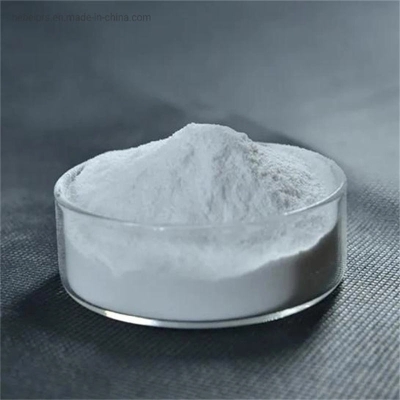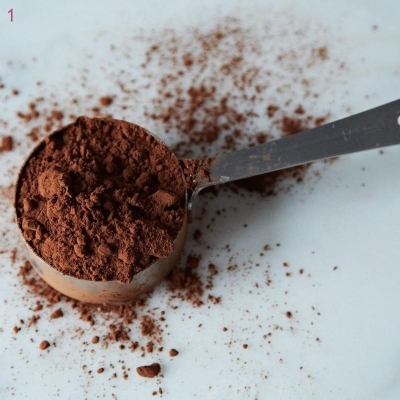Anticancer components in natural plants
-
Last Update: 2020-04-03
-
Source: Internet
-
Author: User
Search more information of high quality chemicals, good prices and reliable suppliers, visit
www.echemi.com
2013-06-06 classification: efficacy 0 people comment that cancer is a general term for more than 100 kinds of diseases that can occur in any part of the body, and it is one of the malignant diseases that seriously affect human health at present In 2005, cancer accounted for 13% of all deaths worldwide, second only to cardiovascular disease Paclitaxel source plants: there are many causes of cancer caused by pictures of Taxus, including physical carcinogens, chemical carcinogens, biological carcinogens (such as viruses, bacteria, mycotoxins, etc.), internal causes related to the decline of immune function, family genetic history, etc In view of the high incidence rate and high mortality rate of cancer, prevention and treatment have always been the focus of attention of researchers at home and abroad After decades of development, many drugs are used for cancer prevention and treatment These drugs can be divided into chemical synthesis, biosynthesis, natural product extraction and so on Many chemosynthetic anticancer drugs have toxic and side effects on human normal cells, so it is still one of the hot spots in recent years to find low toxic and high-efficient anticancer active ingredients from natural animals and plants Medical experiments and clinical application show that camptothecin (c20h1604n2) in roots, stems, skins and seeds of Camptotheca acuminata, matrine (c15h24on2) and Oxymatrine extracted from Sophora flavescens, podophyllotoxin, alkaloids and salicylidin in roots of Myrica rubra, etc are effective in the treatment of gastric cancer; paeonol, toosendanin in Peony The results showed that there were more than 90% inhibition rate of these active components to cervical cancer, and that the oil of Brucea javanica, the fat oil extracted from coix seed, the deodorant alkaloid contained in bergamot, the Gypenoside contained in Gynostemma pentaphyllum, and they had effect on cervical cancer All of them have significant effect Garlic contains diallyl disulfide (DAS), diallyl disulfide (DADS), diallyl trisulfide (dats), etc., which can prevent cancer and inhibit tumor cell proliferation; Annona contains styrofoam, which shows strong antitumor activity in vivo and in vitro; Sargassum fusiforme extract The Yangqi polysaccharide has a good effect on human gastric cancer cells and human rectal cancer cells; the ethyl p-methoxycinnamate in Shajiang, stilbestrol in grape, cassia seed, Veratrum, Polygonum cuspidatum and polymethoxyketone in tangerine peel are all natural anticancer active ingredients Although the names of the effective ingredients in these natural plants are complex, they can be classified into several categories according to their composition: alkaloids, flavonoids, volatile oil, polysaccharides, organic acids, glycosides and so on Alkaloids are a group of nitrogen-containing organic compounds in organisms Most of these compounds have significant physiological activities It is reported that some alkaloids extracted from plants, such as camptothecin, tetrandrine extracted from tetrandrine and three needles, have obvious inhibitory effects on tumor rats Vinblastine extracted from Catharanthus roseus has obvious antitumor activity Vinblastine is a kind of dipolyindole alkaloid, its sulfate is the main anti-tumor drug, which has been widely used in clinical for more than 30 years Quercetin is a kind of natural flavonoid compound, which is contained in the root and leaf flowers of Panax notoginseng, Ginkgo biloba, winter flower, Alpinia officinalis, leaves of black rice tree, honeysuckle, Platycladus orientalis, mulberry parasite, Sophora japonica and many other plants Quercetin can inhibit the growth of leukemia cells under high temperature The extract of propolis contains a variety of anticancer components, mainly including flavonoid quercetin, naphthalene, galangin, apigenin, luteolin, tangerine, etc., terpene compounds including multiple sesquiterpenes, diterpenoids and triterpenes, polysaccharide glycosides, ester compounds such as caffeic acid phenethyl ester, isoprene ester, etc., animal in vivo experiment table Conclusion: the supercritical CO: extract of propolis has a strong inhibitory effect on the growth of tumor cells in vitro The volatile oil of many plants contains anticancer components, such as Elemene in the volatile oil of zedoary turmeric, which can inhibit the growth of a variety of cancer cells (cervical cancer, vulvar cancer, skin cancer, lip cancer, liver cancer, ovarian cancer, etc.), and may also change or enhance the immunogenicity of tumor cells, thus inducing or promoting the rejection of tumor cells The antitumor active component of Taxus chinensis is taxanes in diterpenoids Different extraction methods or different extractants can lead to different antitumor effects Sun Hui, et al Investigated the extraction of Taxus cuspidata with different extractants (supercritical CO2, dichloromethane, supercritical CO2 + ethanol) respectively, and conducted animal experiments on mice with the extracts The results showed that the tumor inhibition rates of the extracts were very different (9.9%, 21.1% and 32.7%, respectively) That is to say, there were differences in the content of effective anti-tumor components in the extracts, supercritical CO with entrainer: there were anti-cancer in the extracts There are many active ingredients Polysaccharide is a kind of polymer which is connected by aldehyde group and ketone group through glycoside bond It widely exists in the cell membrane of animals and the cell wall of plants and microorganisms Since 1950s, fungal polysaccharides have been found to have anti-cancer effect Since then, the research on anti-tumor and immune enhancement of polysaccharides has become hot Some polysaccharide compounds have been used in clinic, and achieved good results, and no adverse reactions such as myelosuppression The water extract of Cordyceps sinensis and Cordyceps mycelia produced by artificial fermentation, and the polysaccharide part obtained from Poria cocos mycelium all have inhibitory effects on the growth of tumor cells Polysaccharide compounds extracted from Panax notoginseng, Fangfeng, liquorice and acanthopanax senticosus can activate reticuloendothelial system and play an anti-tumor role; Ganoderma lucidum polysaccharide can play an immune enhancing role by activating macrophages and protein kinase C (PKC) Glycyrrhetinic acid, glycyrrhetinic acid monoammonium salt, sodium glycyrrhetinic acid and the mixture derived from glycyrrhetinic acid can inhibit ascites cancer and sarcoma in mice Ginsenoside, Gypenoside and astragaloside can promote the growth and metabolism of cells, induce the generation of anti-cancer factor interferon in vivo, regulate the immune function of the body, enhance the stimulation and protection of hematopoietic function of bone marrow, promote the transformation of T-lymphocytes, enhance the activity of NK cells, and thus produce anti-cancer and anti-cancer effects Purpinol (diterpenoids) extracted from the bark of Taxus chinensis is recognized as a broad-spectrum and most active anticancer drug Trichosanthin isolated from Trichosanthes kirilowii and its cross-linked with gastric cancer McAb can induce the apoptosis of gastric cancer solid tumor cells The cyclohexin compounds extracted from Radix Cyperus have activities on leukemia, ascites cancer, melanoma and solid tumor, colon cancer, lung cancer and Ehrlich ascites cancer The ethanol extract of Flos roxburghii has obvious inhibitory effect on the growth of H22 and S180 in experimental mice Tea extracts, such as caffeine and tea polyphenols, have antitumor effects Camptothecin, 10-hydroxycamptothecin, 10-hydroxydeoxycamptothecin and methoxycamptothecin are alkaloids contained in Camptotheca davidii in South China More than 20 compounds have been isolated from Camptotheca acuminata fruits These compounds have different biological activities Camptothecin and 10-hydroxycamptothecin have significant anticancer activities The mechanism of action is through inhibition Topoisomerase I was prepared to show anticancer activity Blocking the production of this enzyme can prevent the growth of cancer cells It shows that the target of camptothecin is topoisomerase I rather than topoisomerase II, which is the unique anticancer mechanism of camptothecin Camptothecin is a light yellow acicular crystal with a melting point of 264-267 ℃ Camptothecin alkaloids are insoluble in water, except for a few solvents such as chloroform, methanol, dimethyl sulfoxide, and so on Camptothecin is toxic, but a series of derivatives were synthesized from camptothecin, from which new compounds with high efficiency and low toxicity have become one of the effective ways to obtain new anticancer drugs At the same time, camptothecin has a good therapeutic effect on psoriasis At present, the main methods of camptothecin extraction are adsorption, alkali percolation and supercritical CO2 extraction.
This article is an English version of an article which is originally in the Chinese language on echemi.com and is provided for information purposes only.
This website makes no representation or warranty of any kind, either expressed or implied, as to the accuracy, completeness ownership or reliability of
the article or any translations thereof. If you have any concerns or complaints relating to the article, please send an email, providing a detailed
description of the concern or complaint, to
service@echemi.com. A staff member will contact you within 5 working days. Once verified, infringing content
will be removed immediately.







